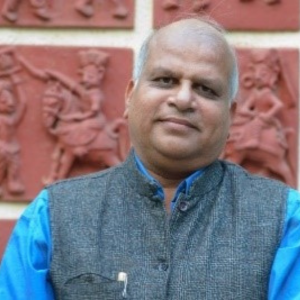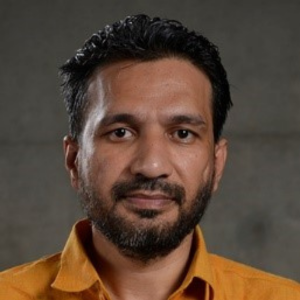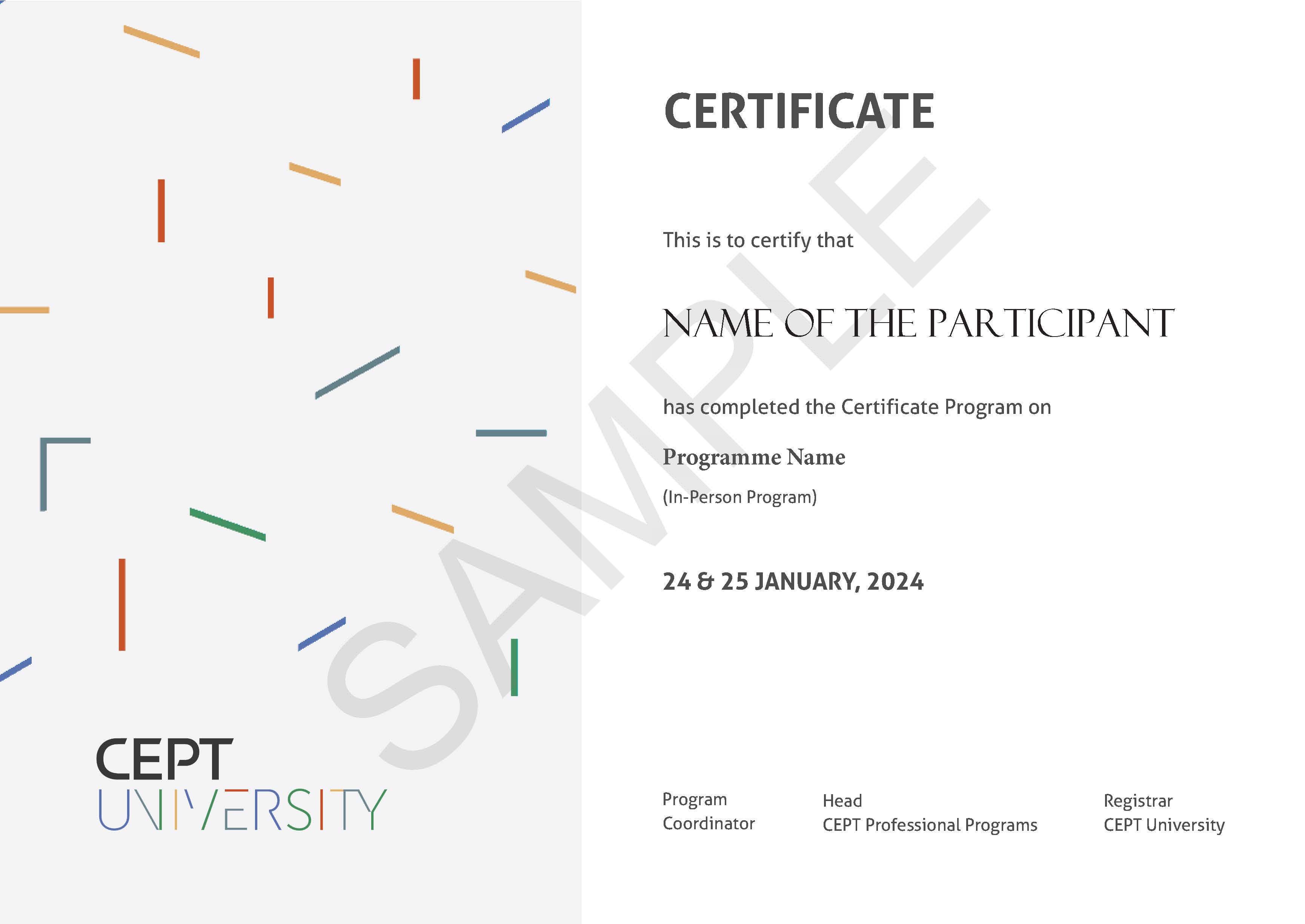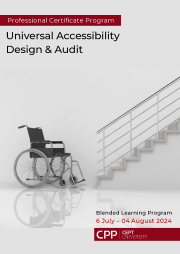- 06 Jul 2024 to 04 Aug 2024
- 40 hours | 05 Weeks
- Blended (On-Campus + On-line)
- Certificate by CEPT University
- INR 25000 + GST
- For Professionals with a Bachelor’s in Architecture / Design / Urban Design / Civil Engineering / Construction Engineering. OR Diploma in Architecture / Design / Civil Engineering / Construction Engineering and relevant work experience of a minimum of two years. OR Professionals working with Urban Local Bodies and engaged in Building Plan Approval System / Process.
About
The Professional Certificate Program in Universal Accessibility Design and Audit addresses the critical need for inclusive design practices in built environments. Through interactive lectures and hands-on exercises, participants engage with leading experts to understand the complexities of universal accessibility.
Through case studies and site visits, participants learn to interpret rules, develop inclusive design solutions, and conduct thorough audits. Collaboration with user groups provides invaluable insights for preparing accessibility compliance reports. By completing this program, professionals can advance their careers and drive positive change in organizations, fostering environments that are accessible to all.
Program Faculty

Anand Patel
Architect
Advisor to GoI & CoA on Universal AccessibilityFaculty at CEPT University

Yatin Pandya
Practicing Architect and Author
Visiting Faculty at CEPT University
Imran Mansuri
Practicing Landscape Architect
Adjunct Assistant Professor at CEPT UniversityGuest Speakers

Jamshed Keki Mistry
Counsel, Supreme Court of India and Bombay High Court
Founder, International Legal Alliance network of lawyersProgram Structure
The program consists of five modules designed to cover fundamental principles of accessibility. The first two modules will deliver online input lectures and hands-on exercises. Modules three and four, conducted at the CEPT University campus, allow participants to conduct audits and gain insight into the application. The final module involves an individual assignment where participants identify and work on a real-site project in their respective locations. The final module will be presented online.
-
1: Introduction to Universal Accessibility
The sensitisation module in universal accessibility training emphasises inclusivity and empathy towards diverse needs. It raises awareness about accommodating individuals regardless of their physical, sensory, or cognitive differences. Participants learn to recognise challenges faced by individuals with disabilities and adopt proactive measures to remove barriers, creating welcoming environments. This fosters a culture of respect and support for diversity within communities and organisations.
-
2: Guidelines and Legal Aspects
The Introduction to the RPwD Act, 2016 module is fundamental to comprehensive universal accessibility training. Participants will learn about legislation and key provisions such as non-discrimination, equal opportunities, and accessibility. They will also explore different disability categories and the specific rights guaranteed to individuals. The module highlights the responsibilities of stakeholders in upholding these rights and promoting inclusivity. By understanding the RPwD Act, participants can advocate for accessibility.
-
3: Application of Guidelines & Conducting Audits
In this module, participants will learn established accessibility guidelines like the Harmonised Guidelines & Standards for Universal Accessibility in India 2021, essential for creating inclusive environments. Additionally, participants will learn the principles of conducting accessibility audits to assess the compliance of physical spaces with these guidelines. This will help identify barriers and implement modifications for universal accessibility in built environments.
-
4: Global Best Practices
Participants will explore innovative strategies, policies, and initiatives implemented globally to enhance accessibility. Through case studies and benchmarking against international standards, participants gain insights into effective practices for designing accessible infrastructure, developing inclusive technologies, and promoting equal opportunities.
-
5: Hands-on Exercises
Hands-on exercises will allow participants to actively engage with accessibility concepts, tools, and techniques in real-world scenarios. Participants will engage in practical activities, like using assistive technologies to navigate simulated inaccessible environments or conducting accessibility audits of physical spaces. These activities offer firsthand experience of challenges faced by individuals with disabilities, fostering problem-solving and critical thinking skills.
Applications and Admissions
The program is open for Professionals with a Bachelor’s in Architecture / Design / Urban Design / Civil Engineering / Construction Engineering. OR Diploma in Architecture / Design / Civil Engineering / Construction Engineering and relevant work experience of a minimum of two years. OR Professionals working with Urban Local Bodies and engaged in Building Plan Approval System / Process.
Applications are open. The deadline for this program is indicative. All applications will be considered as they are received, and seats will be allotted on a first come first serve basis. Admissions will be closed once all seats are full.
Participants will receive a certificate from CEPT University on successful completion of the program
Sample Certificate



